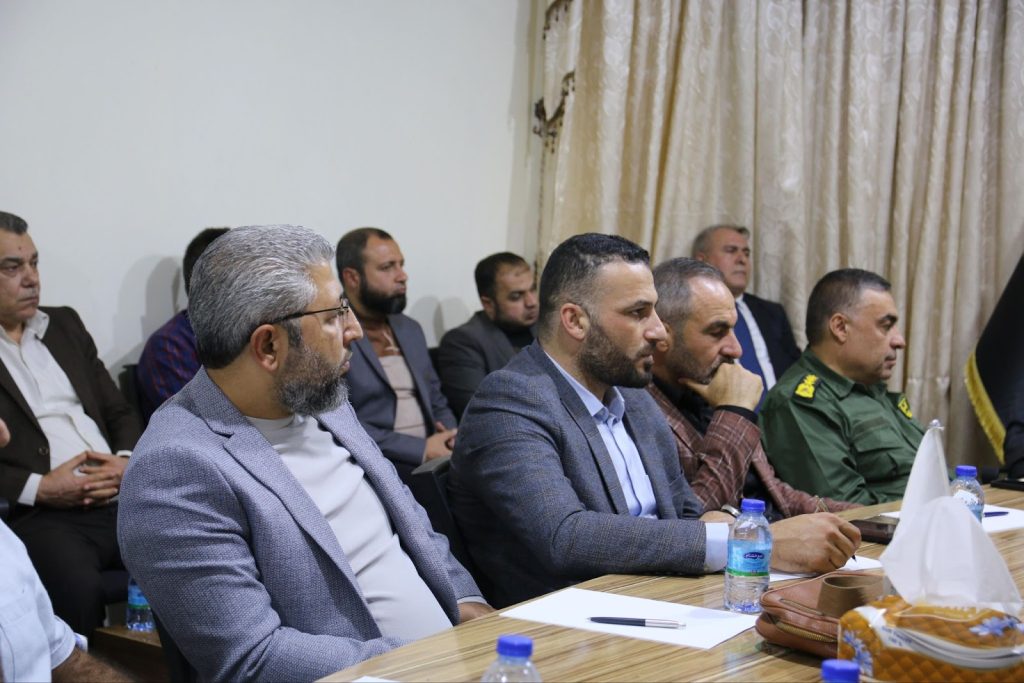Hadi Al-Bahra, President of the Syrian Opposition Coalition (SOC), convened a meeting at the SOC’s office in the town of Azaz in the Aleppo countryside. The gathering included representatives from various civil and political bodies, associations, unions, syndicates, academics, and displaced individuals.
The meeting was attended by key figures such as Badr Jamous, President of the Syrian Negotiations Commission, Abdurrahman Mustafa, Head of the Syrian Interim Government, and several members of the General Assembly of the Coalition. Also present was Brigadier General Hassan Al-Hamada, the Minister of Defense in the Syrian Interim Government.
Discussions during the meeting focused on the current situation in the liberated areas, addressing major challenges, and identifying needs. Participants emphasized the importance of collaborative efforts across different segments of society and the establishment of national institutions that benefit all members of society.
Attendees highlighted the significance of reinforcing the Syrian National Army within the Ministry of Defense to enhance security and stability while minimizing any violations. Additionally, the discussions explored ways to enhance representation within the SOC for all revolutionary and civil forces through an organizational structure that enables the effective participation of willing and able individuals, emphasizing the principle of true participation.
Al-Bahra provided an overview of the SOC’s plan for the next phase, which centers on supporting the negotiating arm represented by the Syrian Negotiations Commission. This involves strengthening and developing capabilities in liberated areas and bolstering relations with friendly and sister countries to elevate the Syrian cause on the international agenda.
The second part of the plan focuses on providing necessary capabilities for the Syrian Interim Government to improve conditions in liberated areas economically, educationally, and culturally. The goal is to expand participation with civil and revolutionary institutions, coordinating efforts to enhance living conditions in education, health, security, and services, and presenting a model for Syria’s future that aligns with the aspirations of the people.
Jamous emphasized the importance of joint action and unified efforts to serve the Syrian people, who sacrificed much to build the future Syria. He highlighted the Syrian Negotiations Commission as a crucial political asset of the Syrian revolution.
Mustafa discussed the role of the interim government in securing basic services, especially in the context of food security, and achieving security and stability despite limited resources. He also emphasized the role and importance of the Syrian National Army.
Al-Hamada provided insights into the Ministry of Defense’s work, including efforts to complete the Military College within the next two months. He explained military training programs, the establishment of special forces units, and ongoing efforts to control the organizational situation.
(Source: SOC’s Media Department)













